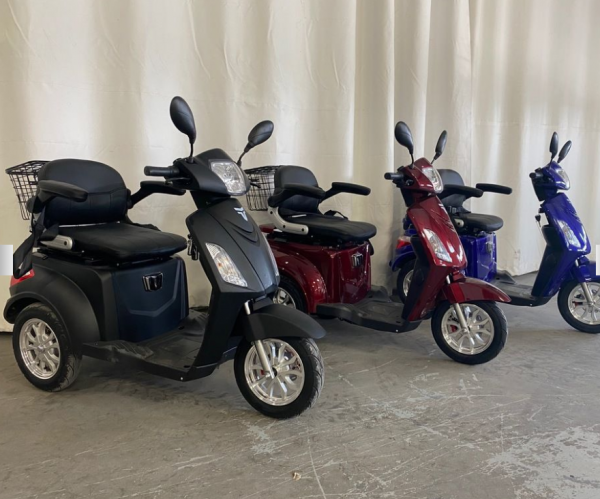Read Time:3 Minute, 2 Second
Choosing the right mobility scooter requires careful consideration of your specific needs and preferences. Here are some factors to consider when selecting a mobility scooter:
- Purpose and Intended Use: Think about how you plan to use the mobility scooter. Will it primarily be for indoor or outdoor use? Do you need it for short trips to nearby places or for longer distances? Understanding the purpose and intended use will help you determine the right type and features of the scooter.
- Weight Capacity and Size: Consider your weight and body size when choosing a mobility scooter. Different models have varying weight capacities, so ensure that the scooter you choose can safely accommodate your weight. Additionally, consider the size and dimensions of the scooter, especially if you have limited space at home or need to navigate through narrow hallways or doorways.
- Maneuverability and Turning Radius: Mobility scooters come in various sizes and turning radius options. If you plan to use it indoors or in tight spaces, look for scooters with a smaller turning radius. This will make it easier to navigate through doorways, hallways, and other confined areas. Additionally, consider the scooter’s maneuverability and ease of steering to ensure it suits your needs.
- Battery Range and Charging: The battery range is an important consideration, especially if you plan to use the scooter for longer trips or outdoor activities. Check the scooter’s battery capacity and range to ensure it can cover the distances you require without needing frequent recharging. Also, consider the charging time and availability of charging stations or outlets.
- Comfort and Adjustability: Comfort is crucial, as you’ll likely be spending a significant amount of time in your mobility scooter. Look for scooters with adjustable seating positions, armrests, and footrests to find a comfortable fit for your body. Consider the seat cushioning, backrest support, and overall ergonomics to ensure a comfortable riding experience.
- Terrain and Suspension: If you plan to use the mobility scooter outdoors, consider the type of terrain you’ll encounter. Some scooters are better suited for flat surfaces, while others are designed to handle uneven terrain or rough surfaces. Look for scooters with good suspension systems, larger wheels, and robust construction if you expect to encounter bumps, gravel, or other challenging surfaces.
- Additional Features and Accessories: Consider any additional features or accessories that may enhance your experience. These can include headlights, taillights, turn signals, storage compartments, baskets, or even USB charging ports. Think about the specific features that would be valuable to you and make your daily life easier.
- Test Drive and Warranty: Whenever possible, test drive different models to assess their comfort, handling, and overall suitability for your needs. Check the warranty provided by the manufacturer or retailer to ensure you have appropriate coverage and support for any potential issues that may arise.
Remember to consult with healthcare professionals, such as occupational therapists or mobility specialists, who can offer guidance based on your specific mobility requirements. Their expertise can help you make an informed decision and select the mobility scooter that best meets your needs.
